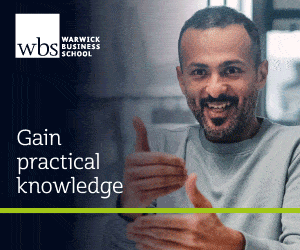Photo credit: © UNESCO / M. Etchegoyen
Huawei announced the implementation stage of the Technology-enabled Open Schools for All Phase II project at Digital Learning Week, UNESCO’s flagship event on digital education. The initiative aims to support the digital transformation of education in Brazil, Egypt, and Thailand through innovative open school models.
Building upon the successes of Phase I in Egypt, Ethiopia, and Ghana, Phase II will focus on establishing flexible, resilient, inclusive, and quality learning environments that blend offline and online learning. The project will leverage technology innovations and human capabilities to create a transformative educational experience.
The announcement was made during the Technology-enabled Open Schools for All Forum hosted by UNESCO and Huawei. Distinguished guests included education ministers from Egypt, Ghana, and other participating countries, as well as representatives from UNESCO and Huawei.
“In Egypt, we have embarked on a transformative journey in education rooted in the belief that technology is not just a tool but a catalyst for unlocking potential, nurturing creativity, and expanding opportunities for both educators and learners. The success of the first phase of this project is a testament to the dedication of our educators and partners,” said H. E. Mohamed Abdel-Latif, Minister of Education and Technical Education of the Arab Republic of Egypt.
Aligned with Huawei’s TECH4ALL digital inclusion program, the initiative will focus on connecting schools, providing teacher training in ICT skills, and developing digital education resources.
“The Open School approach aims to drive the human-centered digital transformation of the education sector through connectivity, competence, and content,” said Joyce Liu, Director of the TECH4ALL Program Office at Huawei. “Through a partnership approach that leverages technology tailored to specific national priorities, we believe that we can realize equitable and inclusive access to lifelong learning opportunities for all.”
The Brazil Open School project will focus on advancing inclusion and green-oriented learning, aligning with the nation’s Connected Schools Strategy. The project will build five smart schools, establish two digital training centers, and provide digital courses for teachers.
Thailand’s Open School project aims to foster well-being in the education domain. It will build ten smart schools, expand the use of smart classrooms, and provide teacher training in ICT skills and digital learning resources.
The Open School projects in Brazil and Thailand will serve as benchmarks for the Latin America and ASEAN regions, respectively. In Egypt, Phase II will focus on expanding teacher training in ICT skills, building upon the success of Phase I, which established a New Center for Distance Learning benefiting 950,000 educators.
The Phase I Open School projects in Ethiopia and Ghana also achieved significant progress in advancing educational technology and empowering educators. Ethiopia equipped and trained 12,000 students and 250 educators across 24 pilot secondary schools, while Ghana improved its national educational platforms and developed an ICT Competency Framework for Teachers.
The UNESCO-Huawei Open School Initiative is a testament to the power of collaboration and technology in transforming education. By leveraging digital solutions and empowering educators, the initiative is creating inclusive and equitable learning opportunities for students around the world.















